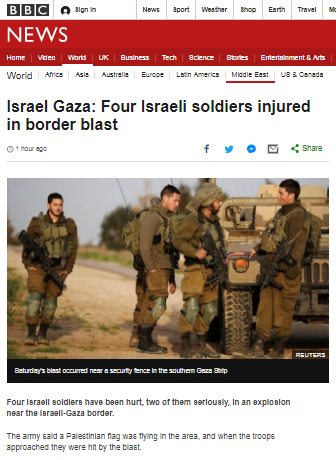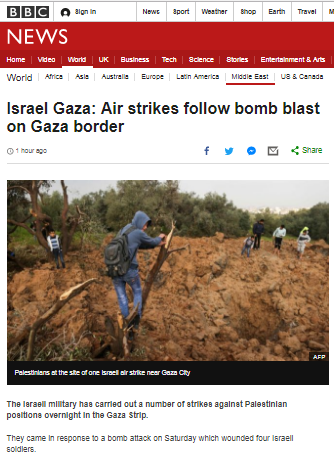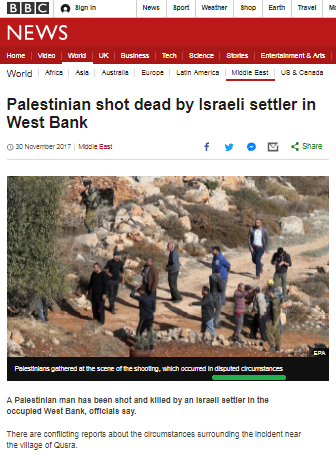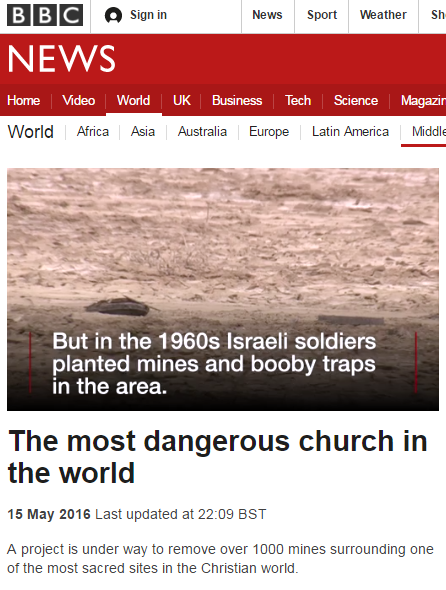On the afternoon of February 17th an incident took place along the border fence with the Gaza Strip in the Khan Younis region.
“Four IDF soldiers were wounded when an explosive device was detonated on an IDF patrol along the Gaza Strip border on Saturday. Two of the soldiers were in a serious condition and two were moderately hurt, the army said. […]
The [IDF] spokesperson told reporters that the patrol stopped along the border to remove a flag that had been placed at the fence a day earlier during a protest, and that a device planted below the flag then detonated.”
Following that attack the IDF carried out strikes on Hamas military installations in the Gaza Strip. Residents of the Western Negev spent the night in air-raid shelters as alarms went off repeatedly and one house in the Sha’ar HaNegev district was hit by a rocket fired from the Gaza Strip – fortunately with no physical injury to the family of five. Further strikes on Hamas and PIJ targets took place after that attack and the following morning another incident took place when two Palestinians approaching the border fence in the southern sector were killed.
On the evening of February 17th the BBC News website published a report titled “Israel Gaza: Four Israeli soldiers injured in border blast” on its Middle East page. The incident that sparked the chain of events was described as follows:
“Four Israeli soldiers have been hurt, two of them seriously, in an explosion near the Israeli-Gaza border.
The army said a Palestinian flag was flying in the area, and when the troops approached they were hit by the blast.”
And:
“No group has so far said it was behind Saturday’s explosion, which happened at 16:00 local time (14:00 GMT) east of the town of Khan Younis.
The army said the explosive device had been planted during a demonstration there on Friday and was attached to a flag.
The troops were approaching from the Israeli side when the device detonated.”
BBC audiences were not informed that the army also commented on Hamas’ involvement in that “demonstration” and others.
“The [explosive] device belonged to rogue organizations and not Islamic Jihad. Hamas is responsible for the incident because it brought protesters to these ‘spontaneous’ demonstrations during the past few weeks, which are then utilized for terror.”
Despite photographs of the damage caused to the house that took a direct hit on its roof being readily available in the Israeli media, the BBC’s report described that incident as follows:
“Israeli media also said a rocket from Gaza fell near a house in the south of the country on Saturday evening. There were no casualties.” [emphasis added]
Readers were told that:
“Correspondents say the border area has been generally quiet in the last few years but there has been an increase in violence since US President Donald Trump’s announcement in December recognising Jerusalem as Israel’s capital.”
The same statement (together with the claim that “a rocket from Gaza fell near a house”) appeared in an article titled “Israel Gaza: Air strikes follow bomb blast on Gaza border” which replaced the previous one on the BBC News website’s Middle East page on the morning of February 18th.
While the “correspondents” who made that statement were not identified, it is of course significant that throughout 2017 BBC journalists based in Jerusalem ignored the vast majority of missile attacks that were launched from the Gaza Strip and that two of the three attacks that were reported were attributed – as in this report – to ‘rising tensions’ following the US announcement recognising Jerusalem as Israel’s capital. In late 2014 and throughout 2015 the majority of attacks launched from the Gaza Strip were not reported in English and in 2016 the BBC ignored all but one attack. The four attacks in 2018 which took place before this latest one were similarly ignored.
It is hence unsurprising that BBC journalists describe the Gaza border area as “generally quiet” despite the fact that – as noted by the ITIC in a summary (Hebrew – see p. 42) of last year’s terror attacks – during 2017 there was a 50% rise in rocket fire against Israel compared to the previous year.
As has been noted here on several occasions in the past, the fact that the BBC routinely under-reports terrorism against Israel – including missile attacks – leads to audiences and BBC journalists alike being unable to put events into their appropriate context when Israel is obliged to respond.
Related Articles:
For the first time this year, BBC reports Gaza rocket attacks on Israeli civilians
Correction secured to inaccurate BBC News website claim about Gaza attacks
BBC News reverts to ignoring Gaza missile fire




